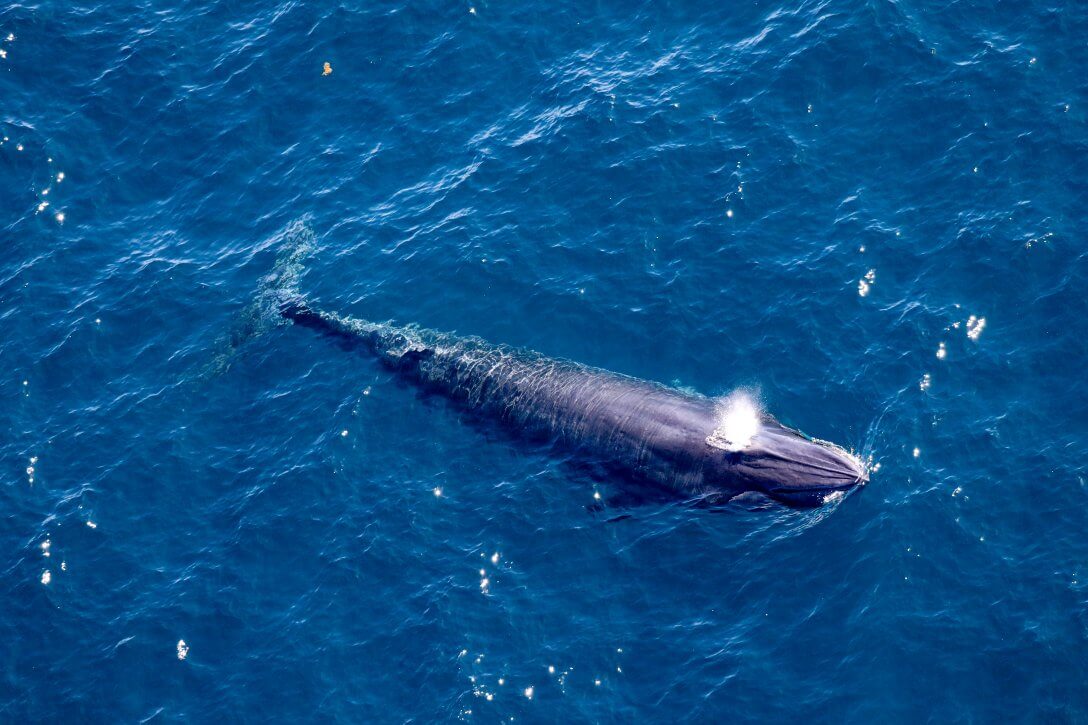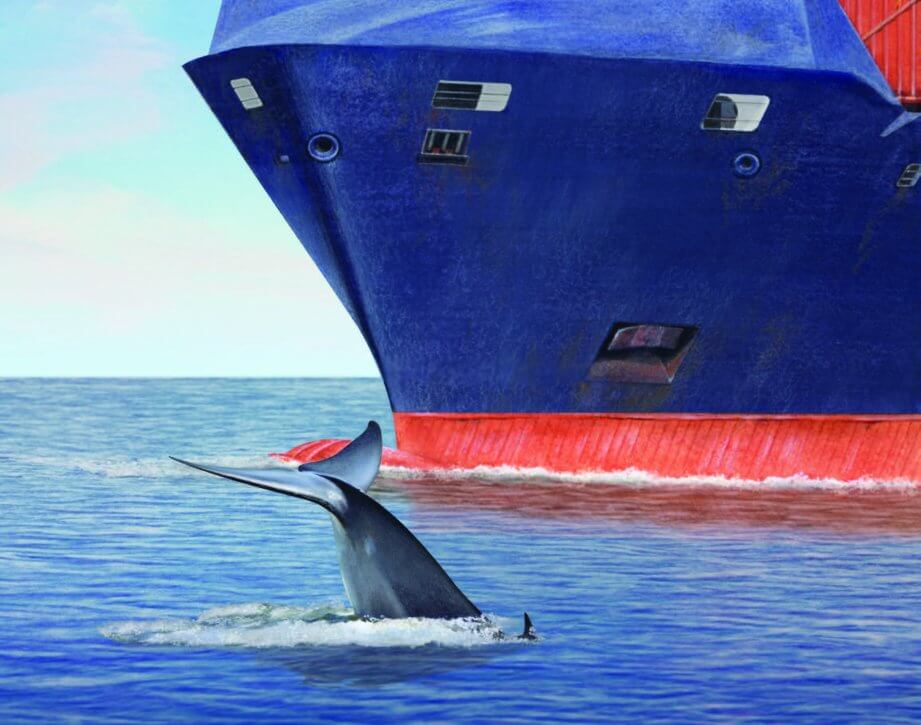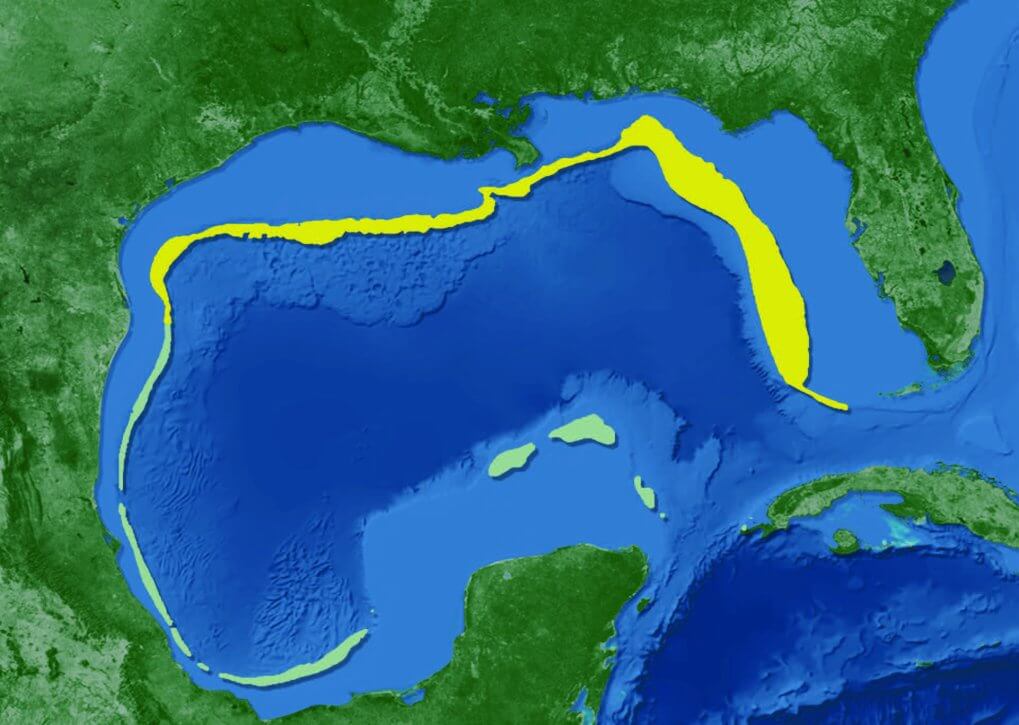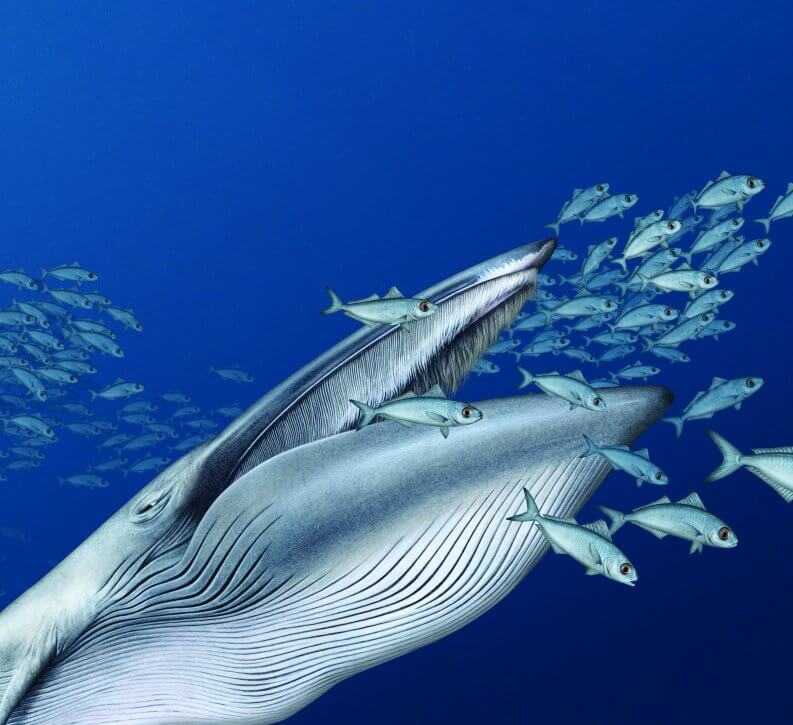
Understanding and Protecting the Endangered Rice’s Whale
Swimming some 30 miles offshore from Pensacola, a magnificent animal with 40 feet of streamlined dark gray body rises above the surface and takes a breath before diving hundreds of feet to the bottom in search of food.
It’s a whale, and with fewer than 100 of its kind remaining, it’s one of the rarest and most endangered whales on the planet. It’s the Rice’s whale, and without quick action to protect them, these animals that play a vital role in the health of the Gulf could be lost forever.
Rice’s whales were first formally documented by scientists in 1965. However, for decades they were believed to be a subspecies of the Bryde’s whale, which ranges across temperate regions worldwide.
In 2019, a whale came ashore on the Florida Gulf Coast and later died. Scientists took this rare opportunity to engage in a more detailed study of the deceased animal, including genetic research, which confirmed that they are a fully distinct species. They were then named the Rice’s whale after longtime researcher Dale Rice, the first scientist to write about the whales in the 1960s. This announcement of the whales as a new species is what first brought them into the larger public eye.

Rice’s whales are found only in the Gulf of Mexico and have been observed off all U.S. Gulf states and Mexico, but they are most common off northwest Florida— the quietest and least industrial part of the Gulf, and the only state without offshore drilling off its coast. Fishermen and scientists from Florida to Texas report occasional sightings, posting videos and photos to social media to help raise awareness about the whales.
The National Oceanic and Atmospheric Administration (NOAA) lists the greatest threats to the whales as vessel strikes, entanglement in fishing gear, energy exploration, ingestion of marine debris, proposed aquaculture activities, oil spills and noise from industrial activities such as oil drilling and ship traffic. Scientists estimate that the 2010 BP oil disaster caused a 22 percent decline in the whale’s population, and it is believed that their numbers continue to decline.
Research and monitoring have found that a suitable habitat for the whales exists along an offshore dropoff where depths range from about 300 to 1,300 feet, and NOAA plans to formally designate this area in the Gulf as critical habitat for the whales. With that, certain offshore activities will be reviewed for their impact on Rice’s whales, affording them some additional protection.

This has already been done for decades for Gulf Coast marine life such as sea turtles and manatees, ensuring they have safe space in which to live while working to minimize impacts to various user groups and economic interests. These protections come from the Endangered Species Act, which enshrines in U.S. law that Americans value the wildlife we share our nation with, and we will not allow species to go extinct due to our actions. Popular Gulf Coast animals like brown pelicans and bald eagles have already recovered and been removed from endangered status due to protections under the Act.
Rice’s whales play a vital role in enhancing the ecology of the Gulf, as they are known to help redistribute nutrients in a way that makes offshore areas more productive for fish such as marlin, tuna and wahoo. When they feed on schooling fish at depth and return to the surface, the whales bring up nutrients that enhance the growth of tiny plankton that form the base of the marine food chain.
Residents of Northwest Florida have picked up the cause of the whales, just as they have for other local wildlife. Last April, the first Gulf Coast Whale Festival was held on Pensacola Beach, with attendees enjoying life-sized inflatable whales, whale art, education and more. Many local artists have made Rice’s whales part of their work, with paintings, murals, jewelry and other whale designs showing up at festivals and events.
Boaters are helping out as well, as offshore sailors and fishermen capture photos and videos of the whales (while keeping a safe distance) and report whale sightings to (877) WHALE HELP (877) 942-5343. This helps scientists learn more about the whales and their habits.

Others are engaging with whale education and conservation measures and helping to shift our communities toward energy conservation and solar energy, reducing the need for offshore drilling and the threats it brings to whales. That includes conserving energy both at home and in the workplace, and transitioning to solar energy as the primary energy source. There’s also a growing movement to retrofit communities to make them more walkable and bikeable, giving residents choices in how to get around every day, and in doing so, helping to make the Gulf of Mexico a cleaner and quieter place for all marine life.
This level of engagement and care shows that humans care about things larger than themselves, whether it’s an endangered species of whale or the larger health of the Gulf ecosystem.
There is a compelling sense of awe we feel from large and charismatic animals like whales, sea turtles and dolphins. Another explanation comes from the famous biologist E.O. Wilson, who grew up along the Gulf Coast and spent part of his boyhood in Pensacola. Wilson coined the term biophilia, describing it as the innate tendency of humans to seek connections with nature. As we connect with Rice’s whales and work for their conservation, we are guided by an affinity for the natural world inside each of us.
To learn more about the Rice’s whale and current conservation efforts, visit fisheries.noaa.gov or ourgulfwhale.org.
For Boaters
- Stay Alert—Know what whales look like at the surface and watch for them.
- Slow down—Run 10 knots slower where whales are known to occur.
- Keep Your Distance—Enjoy whales from a safe distance of at least 100 yards. Support Conservation Actions!
- Support whale education and conservation measures such as vessel slowdown zones.
- Take steps to conserve energy in your home or business and support renewable energy in your community.